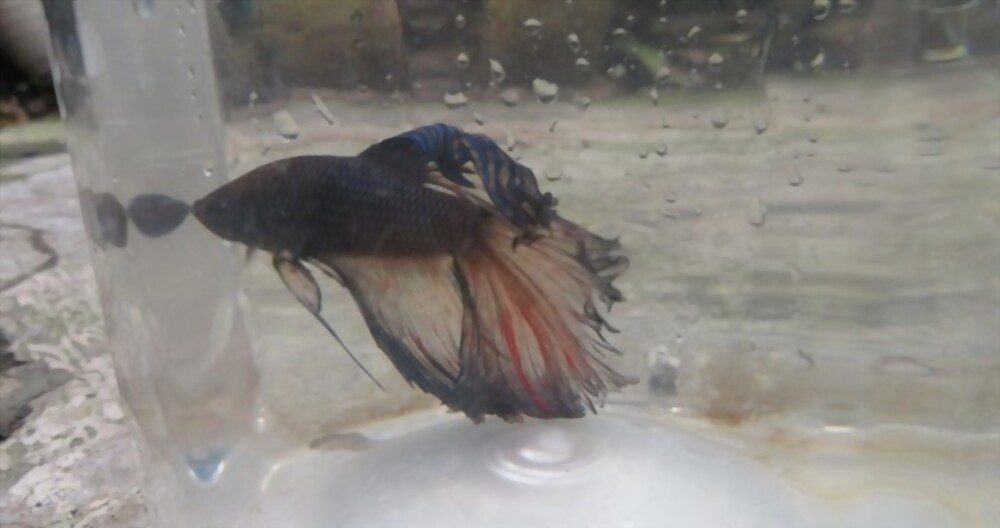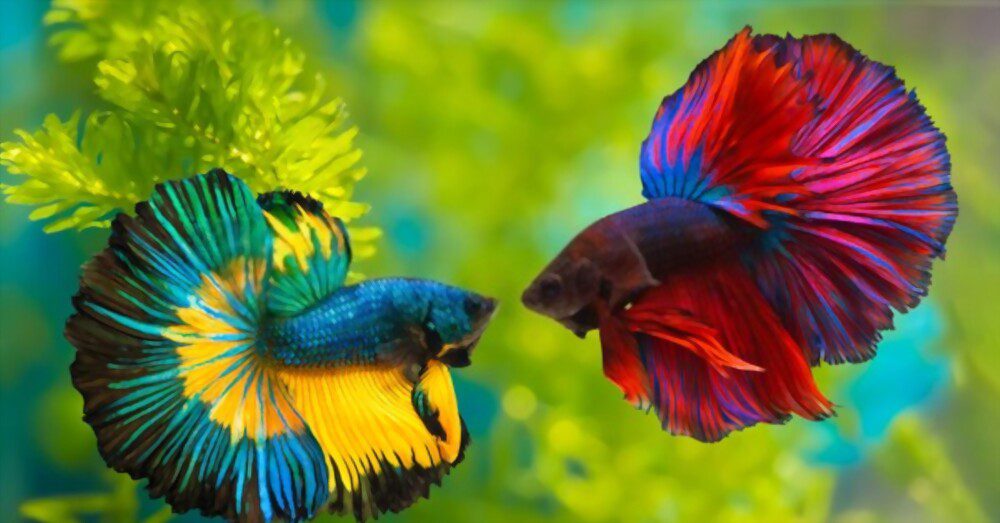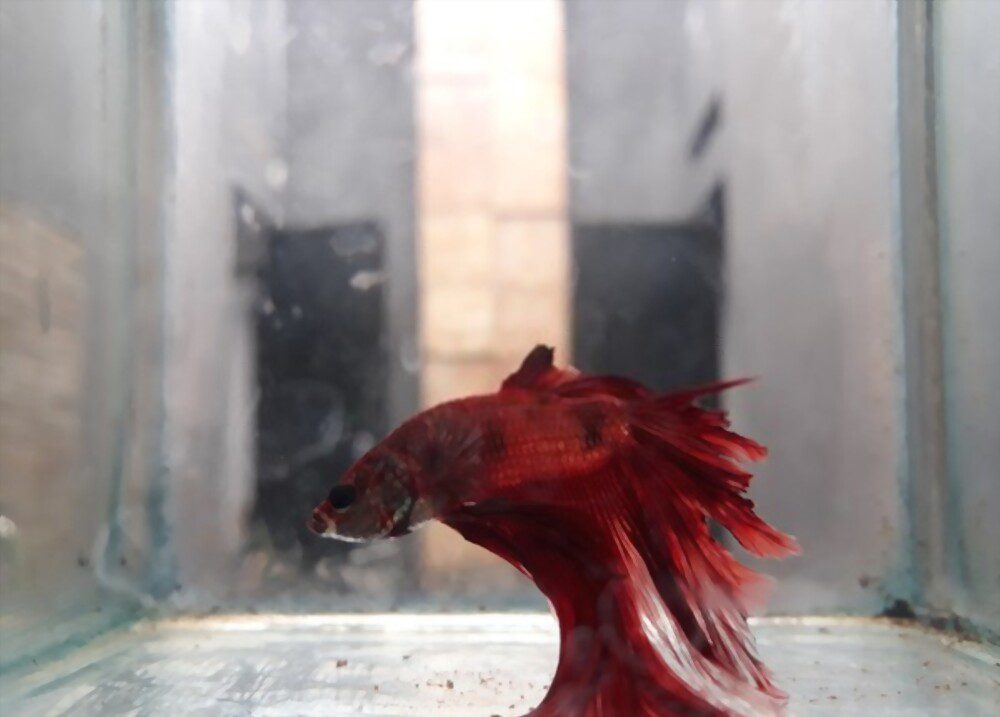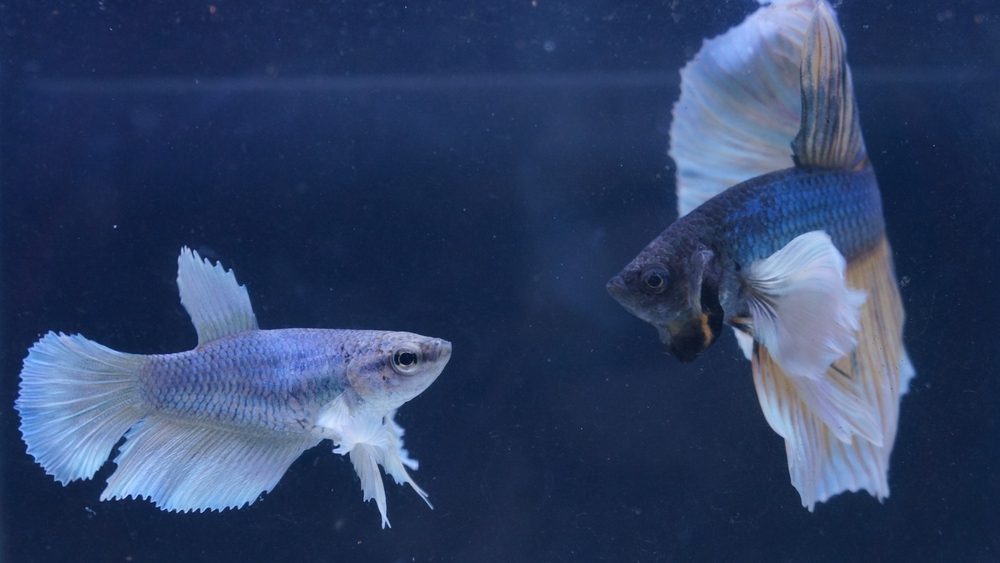Knowing the nature of a betta fish is very important to deal with an aggressive betta fish. Because that is a common problem that every betta fish owner faces. So that’s what exactly we are going to learn in this article.
I remember when I first bought my betta fish. Then after a few days, all of sudden it started to behave aggressively. And I had no clue how should I deal with my aggressive Betta. But, thankfully, after some trial and error, I discovered the solution:
- 1 8 Useful Tips To Stop Your Betta Fish From Being Aggressive
- 2 1- Give Your Betta Fish Solitary Confinement.
- 3 2- Allow Your Betta To See Its Mate.
- 4 3- Avoid Causing Stress On Your Betta
- 5 4- Make Sure Your Betta Tank Is Not Overcrowded
- 6 5- Maintain a comfortable environment in the tank.
- 7 6- Choose The Right Tankmates For Your Betta.
- 8 7- Make Sure Each Betta Fish Has Enough Food.
- 9 8- Be Careful With Your Betta Fish’s Sex Ratio In Tank.
- 10 Disclaimer: These Tips Might Not Work!
- 11 Related Questions
- 12 Wrapping Up
8 Useful Tips To Stop Your Betta Fish From Being Aggressive
- Give your Betta fish solitary confinement.
- Allow your Betta to see its mate.
- Avoid causing stress to your Betta.
- Make sure your betta tank is not overcrowded.
- Maintain a comfortable environment in the tank.
- Choose the right tankmates for your Betta.
- Make sure each betta fish has enough food.
- Be careful with your Betta fish’s sex ratio in the tank.
1- Give Your Betta Fish Solitary Confinement.

Separating aggressive betta fish from other fish is critical for your betta’s health and well-being. Betta fish are quite territorial, therefore it’s critical that they have their own zone free of other fish if you want to keep them happy in their tank.
If you want to take your betta fish out of its tank, you should take your time and be careful not to damage the fish’s fins in the process. If you take things extremely slowly, you should be able to get the fish to adapt quickly to their new environment in a separate tank.
Bear in mind that while you are doing this, you need to keep a close eye on the fish to ensure that it does not escape. Bettas are notorious for jumping, so make sure the container they are kept in has a secure lid.
2- Allow Your Betta To See Its Mate.

If you want your Betta Fish to stop acting aggressively toward the other fish in the tank, it is essential for him to meet his partner. To achieve this result, it is necessary to first house them in separate enclosures and then position those enclosures so that they can see each other through the glass.
When it appears that the female is prepared, you can give the male permission to approach her. If it continues to fight the female, you should look for another potential mate until the male is able to give up the struggle and accept the female.
3- Avoid Causing Stress On Your Betta
Stress can play a significant role in your Betta fish becoming hostile. If you can’t persuade them to stop fighting, the first thing you should attempt is to limit the number of stresses surrounding them.
There are many factors that can add to Betta fish stress:
- Elevated levels of ammonia and nitrate in the water, caused by infrequent water changes, are the most common cause of stress in goldfish.
- Because pH levels can swing wildly, stress can be caused when the mineral buffers in the body deplete.
- Another primary factor contributing to stressed Betta fish is changes in water temperature.
- The incorrect introduction of new fish into an existing community tank can also cause stress.
- They may also be stressed as a result of poor nutrition or an irregular feeding schedule.
There are a few methods that are particularly useful for lowering the levels of stress experienced by your Betta fish.
Regular water changes are necessary in order to maintain manageable levels of nitrate and ammonia. You could try adding water conditioners such as API Stress Coat Aquarium Water Conditioner, which is designed to reduce the amount of stress experienced by fish by up to forty percent by eliminating potentially harmful toxins.
You could also give the API Stress Zyme Aquarium Water Conditioner a shot; it maintains a cleaner aquarium and contributes to the acceleration of its natural cycle.
You need to make sure there is adequate oxygenation and a filtration system that is effective enough to remove debris and bacteria from the water.
Make sure there are sufficient places for the fish to hide, but be careful not to overcrowd the tank because this can prevent the oxygen from circulating properly.
You should make it a habit to check the temperature of the water on a regular basis to avoid stressful fluctuations. Believe me, the temperature of the water has a significant influence on the behavior of fish.
Make sure you introduce your new fish the right way. The proper way to introduce new Betta is to immerse them in the tank while they are still in their plastic bag. This will not only help your new Betta adjust to the temperature of the water, but it will also give your other fish time to get used to their new tank mate.
4- Make Sure Your Betta Tank Is Not Overcrowded
Overcrowding is a prevalent issue with betta fish. It’s stressful for them, which can result in aggression, stunted growth, and other health problems. These symptoms could be the result of a lack of oxygen. Betta fish kept in overcrowded conditions will have slower growth, lower immunity, and be more susceptible to illness.
An overcrowded aquarium is both cruel to the fish you care for and harmful to the animal’s overall health. It can be solved by moving some of the betta fish to a larger aquarium or purchasing a larger one.
5- Maintain a comfortable environment in the tank.
The aquarium’s water is the most important factor in providing a comfortable environment for your fish. Sadly, aquarium keepers frequently fail to properly care for their fish because they fail to see the need of maintaining a high standard of water quality.
If you do not want your betta fish to exhibit aggressive behavior, you will need to pay close attention to keeping the water quality in the aquarium at a high standard.
There are a few of the most crucial aspects of your betta tank’s surroundings that you need to pay close attention to in order to keep it in a healthy state.
Temperature: A heater should be used in order to keep the temperature stable. Temperatures in the range of 75-80°F (24-27°C) should be maintained. The betta’s immune system will slow in response to the colder water, making them more susceptible to sickness and stress. They may feel distressed and age more rapidly as a result of their metabolism speeding up in response to the hotter water.
pH Level: Bettas do well in relatively calm water with a pH ranging from 6.8 to 8.
Ammonia: Because betta fish create ammonia as a normal byproduct of their metabolism, and accumulation of this material in the water may pose a significant threat to the fish. When you observe that your betta fish are stressed out or when you detect a sudden death in fish, an increase in ammonia should be evaluated as a likely culprit since it is the main reason.
Cloudiness: There are numerous causes of cloudy water, and the majority of them are fixable. Cloudy water is difficult to clean and you must conduct research in order to find a solution. The color of the water and the events that preceded it can usually be used to determine what caused cloudy water.
Ideal Water Parameters For Betta Fish
| Parameter Name | Value |
|---|---|
| Water Temperature | 75-80°F (24-27°C) |
| pH Level | 6.5-8 |
| Ammonia and Nitrite | 0 ppm |
| Nitrate | |
| General Hardness (GH) | 3-4 dGh |
| Carbonate Hardness | 3-5 dKH |
6- Choose The Right Tankmates For Your Betta.
I am aware that Betta fish have a reputation for being hostile and territorial, and that they are typically thought of as being terrible tank mates; however, this is not always the case. Although it’s true that male bettas, in particular, can be quite hostile toward one another, this doesn’t necessitate that you have to keep your fish all by themselves their entire lives.
Consider putting your betta in a tank with one of these recommended fish tank mates if you’re looking to give it a companion.
- Corydoras Catfish
- Neon and Ember Tetras
- Harlequin Rasboras
- Guppies
- Clown Pleco
- Kuhli Loaches
7- Make Sure Each Betta Fish Has Enough Food.
Make certain that each betta fish has enough food. If you feed your fish twice a day, each meal should only contain two pellets, even if you feed them twice a day. The majority of the time, they will ingest small pellets or flakes. However, some Bettas prefer to consume live items such as worms, crickets, and other minute insects.
If you’re having trouble getting your betta to eat, you can try changing the food he’s been consuming. Many people feed their Bettas pellets as their primary food, with the occasional offering of live items as a special treat.
8- Be Careful With Your Betta Fish’s Sex Ratio In Tank.

There should be an appropriate distribution of males and females in betta tanks at all times. When there are an excessive number of males, they will begin to compete with one another for the right to mate with females by picking fights with one another and harassing one another.
It is possible that as a consequence of this, some of the fish may die, and it is also possible that the females will be deprived of the opportunity to reproduce.
It’s best practice to have at least one male fish for every three females in a tank. To put it another way, the ratio of males to females in your betta tank should be 1:3.
Disclaimer: These Tips Might Not Work!
Following the procedures outlined above will assist in taming the aggressive tendencies of your Betta.
Despite this, there is no guarantee that it won’t engage in combat with other fish in the future. This is because it is inherent in his personality to fight for supremacy in his territory. When it comes to taking care of Bettas, having the skill to soothe them and prevent harm is a definite asset.
Related Questions
Do Bettas Flare When They Are Happy?
As a general rule, when Betta fish are happy they flare and their color becomes more vibrant. The natural flare of some betta fish occurs when the fish are stimulated in a positive way by something like food, water, or their preferred hiding places. But there are some species of betta fish that do not flare at all.
Are Female Betta Fish Aggressive?
Female betta fish are less aggressive than male betta fish. Keep in mind that there is a reason why bettas are also known as Siamese fighting fish. Although it is possible for female betta fish to live peacefully with one another, there is still the possibility of conflict and other occurrences.
Are Betta Fish Fry Aggressive?
As a general rule, a baby Betta fish is not hostile toward other fish; in fact, You can add a number of very young bettas that were housed in community tanks with a wide variety of other species and there will be no issue.
Wrapping Up
If you give these suggestions a try, your Betta fish will have a happy and healthy life for a very long time! In the case that you ever have any issues with your Betta fish, please do not be reluctant to seek assistance from a professional who is aware of what they are doing and who will offer the care and assistance that your pet deserves.

